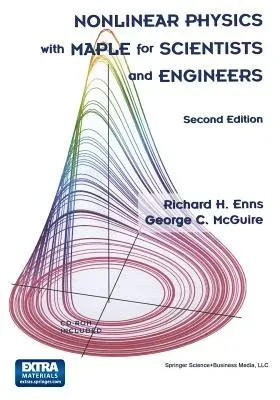Richard H Enns
(Author)Nonlinear Physics with Maple for Scientists and Engineers (2000. Softcover Reprint of the Original 2nd 2000)Paperback - 2000. Softcover Reprint of the Original 2nd 2000, 19 April 2013

Qty
1
Turbo
Ships in 2 - 3 days
In Stock
Free Delivery
Cash on Delivery
15 Days
Free Returns
Secure Checkout

Print Length
661 pages
Language
English
Publisher
Birkhauser
Date Published
19 Apr 2013
ISBN-10
1461270936
ISBN-13
9781461270935
Description
Product Details
Authors:
Book Edition:
2000. Softcover Reprint of the Original 2nd 2000
Book Format:
Paperback
Country of Origin:
NL
Date Published:
19 April 2013
Dimensions:
25.4 x
17.78 x
3.45 cm
ISBN-10:
1461270936
ISBN-13:
9781461270935
Language:
English
Location:
Boston, MA
Pages:
661
Publisher:
Weight:
1161.2 gm